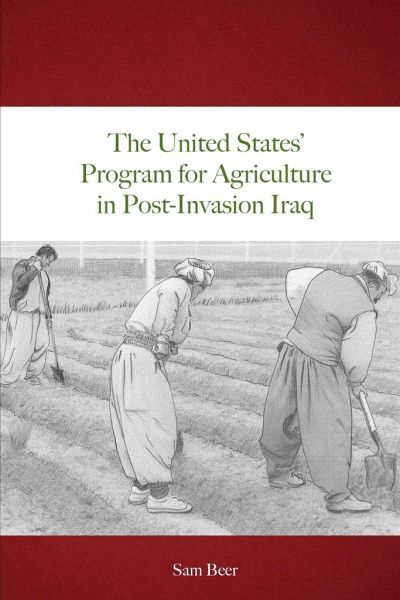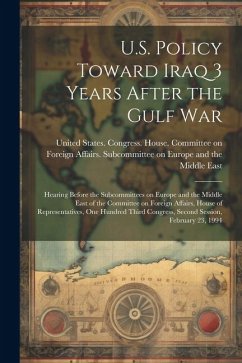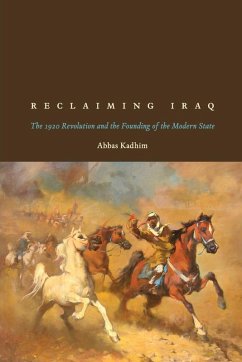
The United States' Program for Agriculture in Post-Invasion Iraq
Versandkostenfrei!
Versandfertig in 1-2 Wochen
25,99 €
inkl. MwSt.

PAYBACK Punkte
13 °P sammeln!
In the wake of the invasion of Iraq in 2003, the United States embarked on the massive project of rebuilding and transforming the agricultural sector in that country. This program was as controversial as the invasion itself, being variously portrayed as the hands-on altruism of Farm Belt army reservists or the neocolonial subjugation of Iraqi farmers to American corporations. Agricultural "development" in Iraq (and simultaneously, in Afghanistan) was conducted differently than previous such projects-largely by contractors rather than USAID employees, and in close coordination with the occupyin...
In the wake of the invasion of Iraq in 2003, the United States embarked on the massive project of rebuilding and transforming the agricultural sector in that country. This program was as controversial as the invasion itself, being variously portrayed as the hands-on altruism of Farm Belt army reservists or the neocolonial subjugation of Iraqi farmers to American corporations. Agricultural "development" in Iraq (and simultaneously, in Afghanistan) was conducted differently than previous such projects-largely by contractors rather than USAID employees, and in close coordination with the occupying military forces. While a popular opinion has emerged against the invasion itself, there has been little retrospective discussion about the goals or methods of agricultural aid in Iraq. With close examination of the changes enacted, this book sets out to foster that discussion.














